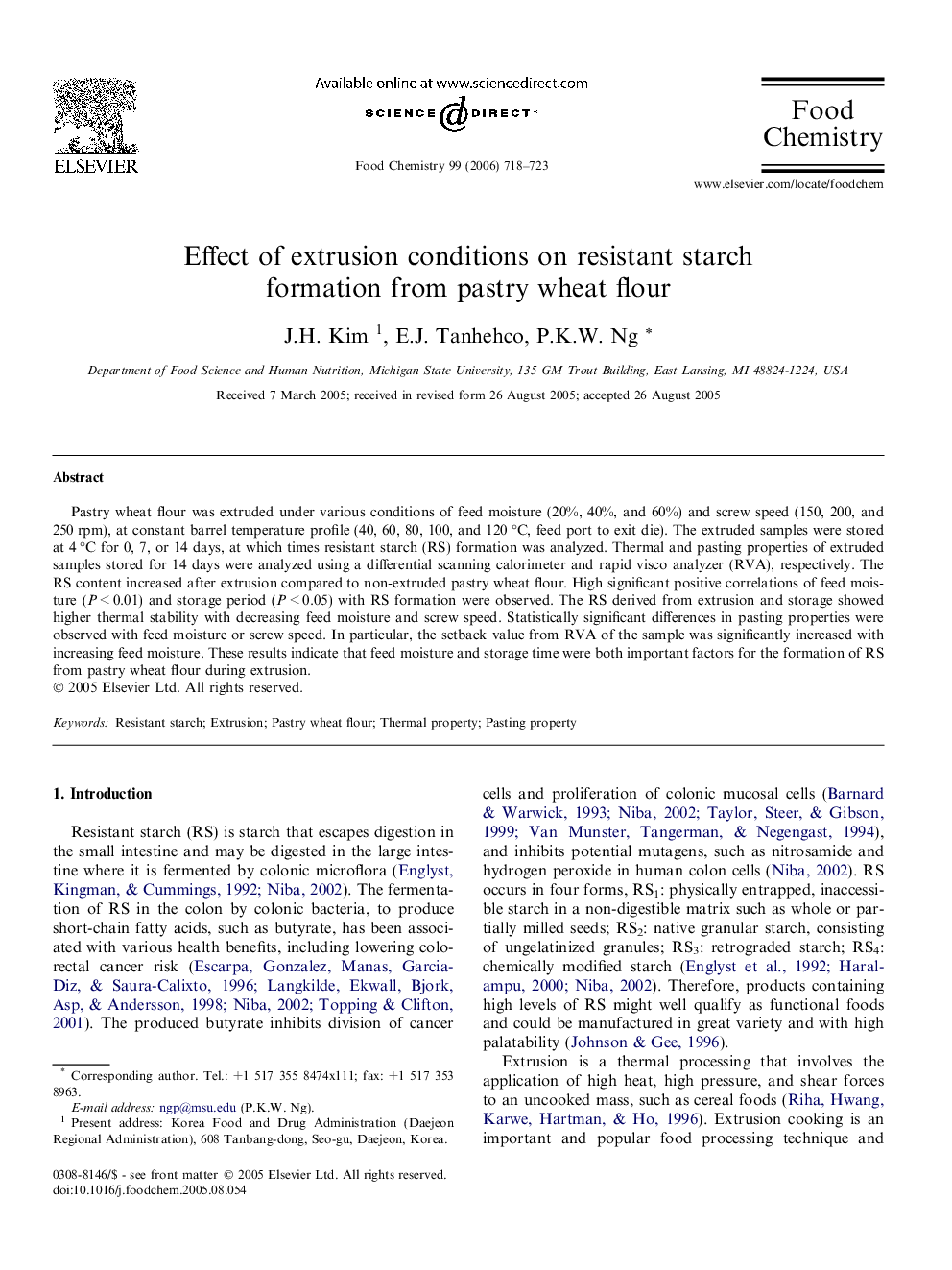| Article ID | Journal | Published Year | Pages | File Type |
|---|---|---|---|---|
| 1188394 | Food Chemistry | 2006 | 6 Pages |
Pastry wheat flour was extruded under various conditions of feed moisture (20%, 40%, and 60%) and screw speed (150, 200, and 250 rpm), at constant barrel temperature profile (40, 60, 80, 100, and 120 °C, feed port to exit die). The extruded samples were stored at 4 °C for 0, 7, or 14 days, at which times resistant starch (RS) formation was analyzed. Thermal and pasting properties of extruded samples stored for 14 days were analyzed using a differential scanning calorimeter and rapid visco analyzer (RVA), respectively. The RS content increased after extrusion compared to non-extruded pastry wheat flour. High significant positive correlations of feed moisture (P < 0.01) and storage period (P < 0.05) with RS formation were observed. The RS derived from extrusion and storage showed higher thermal stability with decreasing feed moisture and screw speed. Statistically significant differences in pasting properties were observed with feed moisture or screw speed. In particular, the setback value from RVA of the sample was significantly increased with increasing feed moisture. These results indicate that feed moisture and storage time were both important factors for the formation of RS from pastry wheat flour during extrusion.
